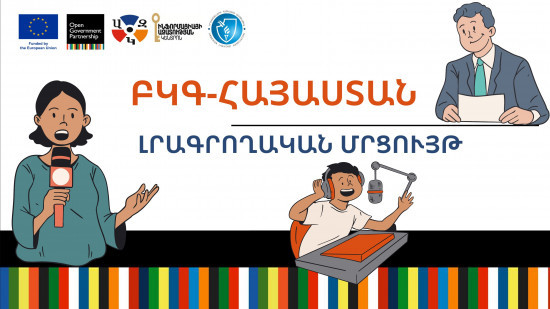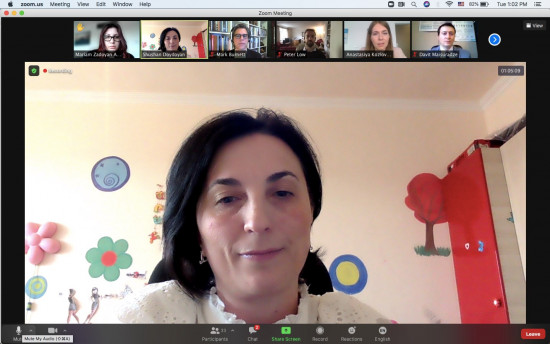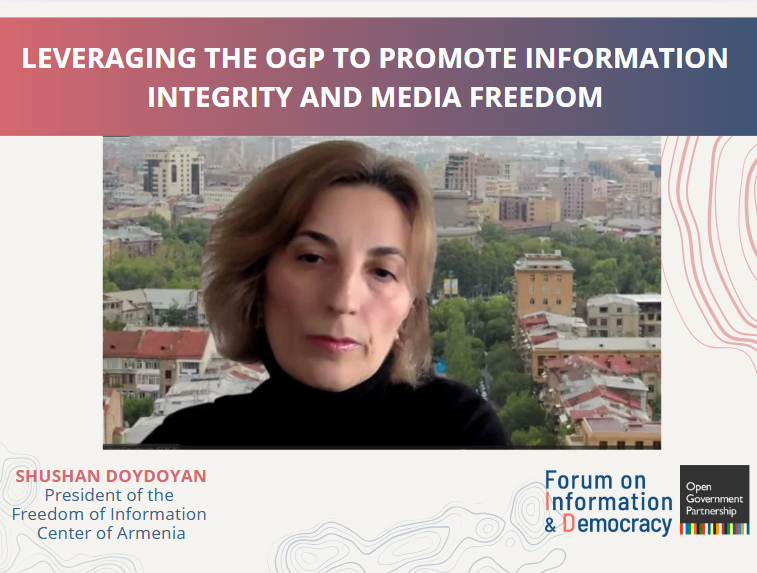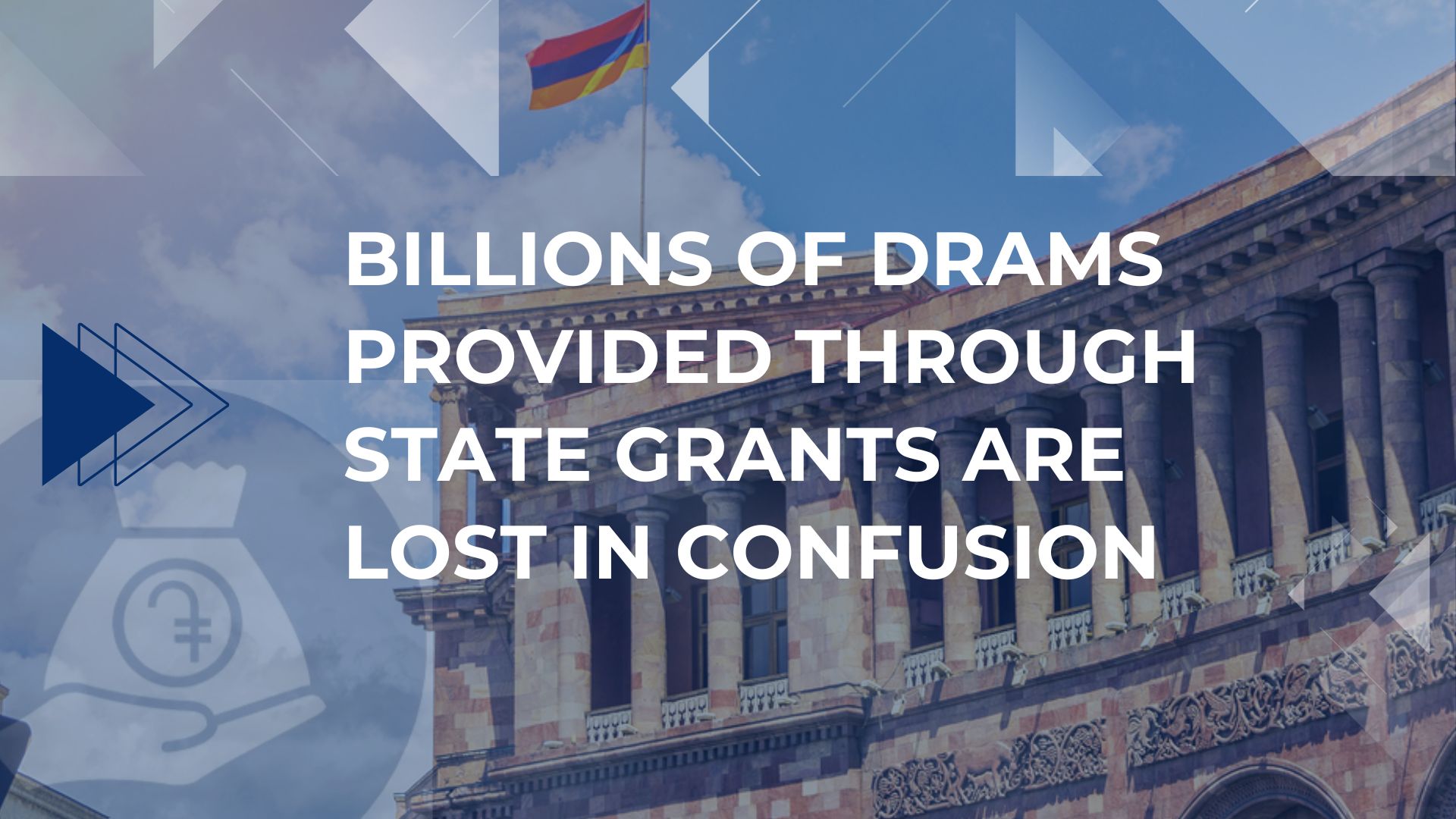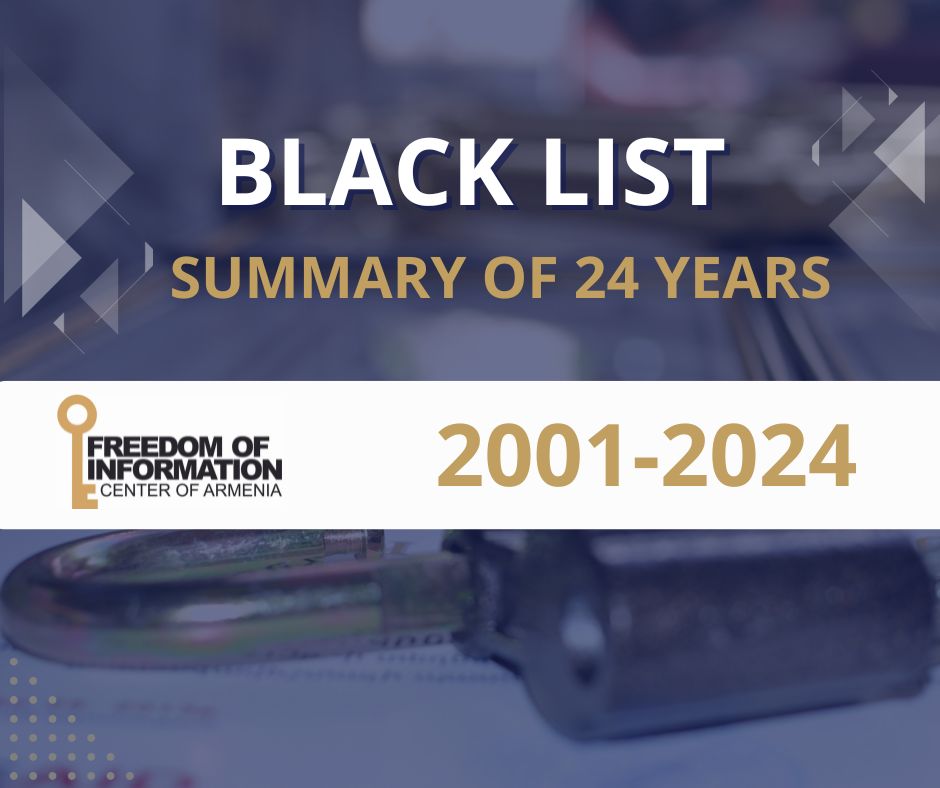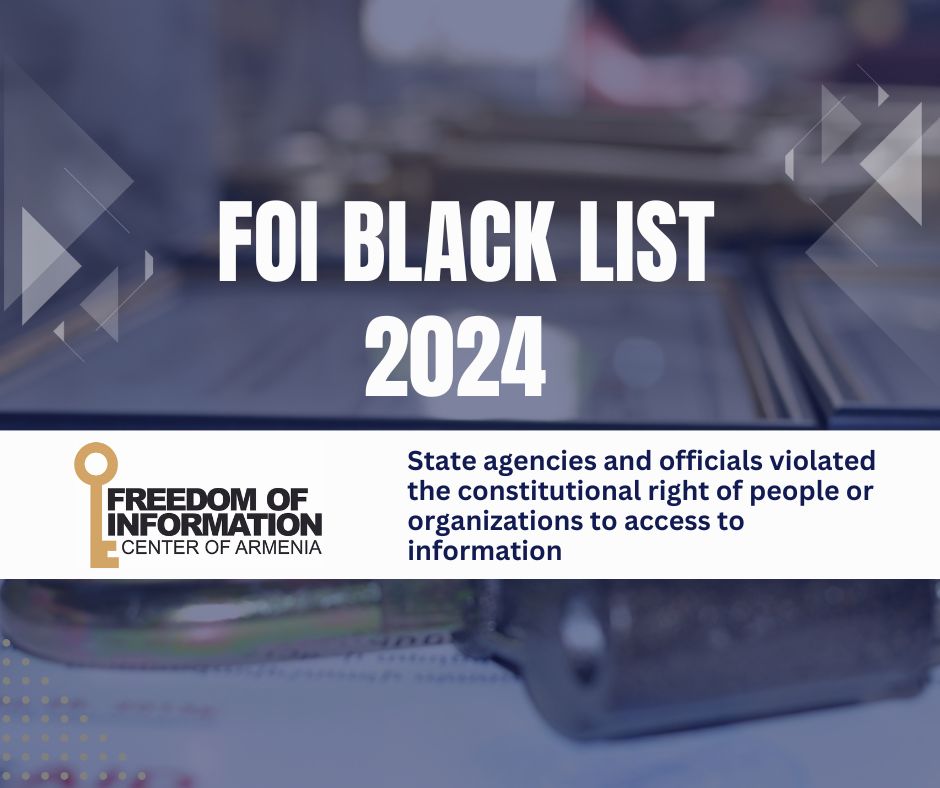The annual meeting of the Open Government Partnership drew 800 representatives and about 200 NGOs from 60 member countries. U.S. State Secretary Hillary Clinton, Georgian Prime Minister Nika Gelauri, President of Tanzania Jakaya Kikwete, and President of Brazil Dilma Rousseff made remarks presenting the key issues of this large scale initiative and further actions to be taken.
Then the groups of member countries presented their action plans and their commitments to the open government to be implemented during 2012-2014. The three countries involved in the South Caucasus group, Armenia, Georgia and Azerbaijan, presented their detailed action plans. Ashot Hovakimyan, RA Deputy Foreign Minister and head of the Armenian OGP working group spoke about the main goals, directions and responsibilities of the RA action plan. He emphasized that the decision to join the “Open Government Partnership initiative expresses Armenia’s willingness to ensure more transparency and accountability while delivering public services. Rule of law and strengthening the efficient governance is the state’s priority; and the Armenian authorities have had a number of accomplishments over the recent decade.” The main provisions of Armenia’s actions are focused on improvement of the efficiency, transparency and accountability of the public government system in the country: enhancing the efficiency of management of public resources, developing electronic management, improving the procurement process and providing transparency thereof, improving the freedom of and access to information, publicizing the declarations of property and incomes of officials, fight the corruption, etc.
Expert of “Freedom of Information Center” and member of the OGP Armenian working group Liana Doydoyan informed those present that the Armenian working group of action plan development has involved 8 representative of the civil society, and all their proposals were incorporated in the document. “The Freedom of Information Center, in particular, had suggested to include over 10 points in the two-year program of Open Government basically covering the improvement of the content of official websites and the information published therein, knowledge and skills of officials in the freedom of information domain, ensuring the publicity of declaration of the property and incomes of officials, and others,” Liana Doydoyan says.
Action plans of Georgia and Azerbaijan were presented by the Georgian Deputy Ministry of Justice Giorgi Vashadze and Azerbaijani Minister of Communication and Information Technologies Ali Abasov, respectively. Both countries had sent quite large official delegations to Brazil. The Georgian delegation led by the Prime Minister of that country was among the most representative ones. The Azerbaijani official delegation consisted of 15 members.
The Georgian Deputy Justice Minister stated that Georgia will apply the so called one window principle while delivering public services: people will attend to one united center for all necessary documents and transactions. Azerbaijan’s program included 21 pages, which was twice more than required. The document included control of corruption and criminal offences, measures focusing stimulation of public government, etc. Following the Minister’s speech, representative of the National Budget Group NGO Galib Abaszade criticized Azerbaijan for corruption, and the criticism was negatively reacted by the Minister and other Azeri officials present.
To the question by the Head of Asparez Journalist Club Levon Barseghyan about what agencies or departments will be responsible for implementation of the action plans in the three countries, the RA Deputy FM Hovakimyan answered that different departments will be implementing those actions; the Georgian Deputy Justice Minister gave a similar answer, and the representative of Azerbaijan explained that a particular ministry or department will be involved in each section of the program, while the overall leadership is given to the country’s president.
Representatives of civil society, in turn, attached importance to the further implementation of the action plan and the civil control over these commitments of the authorities.
The Open Government Partnership was launched in September 2011, by the initiative of 8 countries (Brazil, Indonesia, Mexico, Norway, Philippines, South Africa, the United Kingdom and the United States). Over 60 countries have now joined the initiative. The Republic of Armenia became a member in November 2011. The OGP Declaration reads that it is aimed to make the governmental activities more public, promote the society’s participation in the governance of public life, and have more transparent and responsible authorities.


